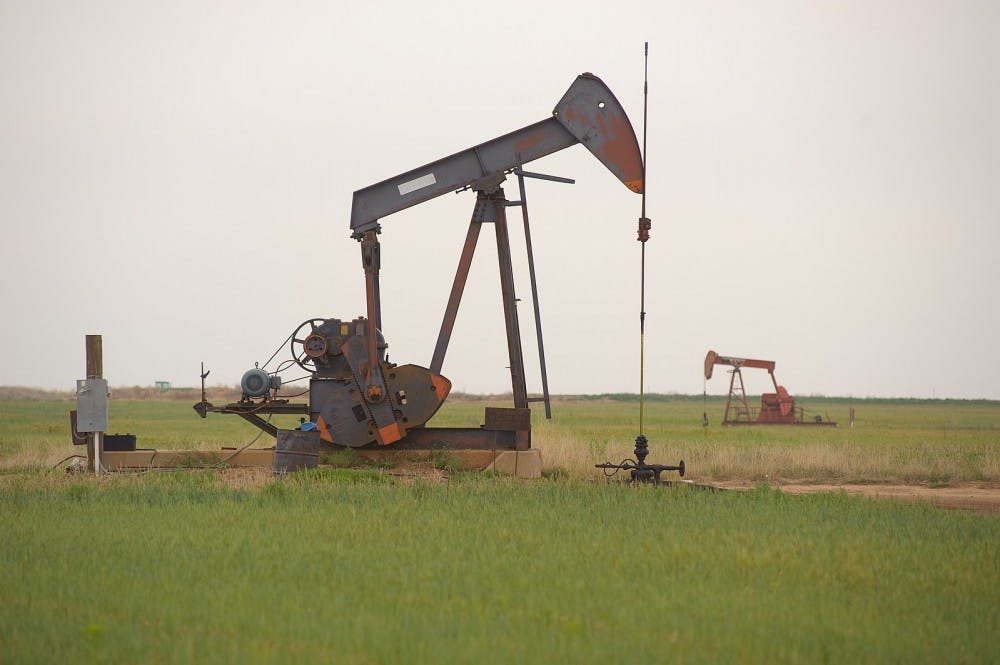Virginia received good economic news from Old Dominion University’s 2018 “State of the Commonwealth” report. For the first time this decade, economic growth in Virginia will meet or surpass the national average, with federal tax cuts and spending contributing heavily towards such growth in tandem with private activity. However, the Commonwealth’s dependence on federal spending and contracts can hurt as much as it helps. Robert M. McNab, ODU economics professor and report director, argues that the growing federal deficit portends an uncertain future for government spending vital for economic sustainability. To safeguard against such uncertainty and extend economic opportunity to more Virginians, policymakers and business leaders should explore further avenues to diversify and grow the Commonwealth’s economy. Texas provides an example for Virginia to follow in transforming an underperforming economy into one of the nation’s most dynamic.
The Lone Star State was the nation’s fastest growing economy in 2017. The manufacturing and oil drilling sectors propelled Texas to become the nation’s second largest economy after California, with its business-friendly climate also attracting investment. Policymakers and business leaders alike should take lessons from Texas and apply them in Virginia. Although the two states are not identical, both share environments conducive to economic investment and are regarded as some of the best states in which to do business in America. Virginia’s oil and natural gas resources provide an opportunity to replicate Texas’s success in drilling and manufacturing could help revive disinvested parts of the Commonwealth.
Environmental activists and other concerned Coastal Virginia residents and policymakers have suppressed offshore drilling in the past. The Deepwater Horizon oil spill in 2010 further compounded uncertainties concerning offshore drilling. As with any industry, certain risks accompany the benefits of investment, and offshore drilling is no exception.
However, spills like Deepwater Horizon are exceedingly rare to begin with, especially in America. Wind power presents an alternative source for both energy and investment in Coastal Virginia, and both options provide paths forward to diversify the region’s economy.
While the Obama Administration looked favorably upon offshore oil exploration off Virginia’s coast at one point, state legislatures prevented further exploration from occurring. Coastal Virginia would be as especially strong candidate for oil-exploration and drilling, with the Port of Norfolk providing the necessary infrastructure to export oil around the world. State policymakers should revisit the possibility of offshore drilling to help Coastal Virginia encourage investment independent of federal spending, which is currently one the region’s most significant sources of economic activity. Additionally, Southwestern Virginia oil and natural gas reserves provide an opportunity for economic investment in that region.
Moreover, according to the University’s Weldon Cooper Center for Public Service, Virginia’s population growth has slowed to the lowest rates since the 1920s, averaging at 5.9 percent expansion from 2010 to 2017. The Center estimates that Northern Virginia alone accounted for 60 percent of that growth. However, a record 64 of Virginia’s 95 counties experienced death rates higher than birth rates. The eastern, Southside and Southwest regions all experienced population decline. The lack of opportunity in those areas has caused residents to leave, with reductions in manufacturing and mining activity contributing towards the absence of economic opportunity.
The decline of eastern, Southside and Southwest Virginia should cause concern for state policymakers. Encouraging manufacturing growth in those areas would allow for those communities to thrive and rebound from recent disinvestment. Currently, population and economic growth trends heavily favor Northern Virginia. Amazon’s recent decision to establish another headquarters there illustrates the type of investment the region is attracting. However, other areas in Virginia need economic investment as well to sustain local communities and ensure Virginia’s competitiveness as a destination for business and growth.
Virginia especially stands out as the state with the most conducive regulatory environment to do business in the entire country. As a right-to-work state, along with other factors, Virginia is poised to lead the nation in economic growth and extend opportunity to its residents. Texas provides an example of the possibilities through which economic growth can be expanded. Whether by following Texas’s model or exploring alternative methods to grow and sustain its economy, the Commonwealth must explore areas in which it can secure the future of communities across the state.
Thomas Ferguson is an Opinion Columnist for The Cavalier Daily. He can be reached at t.ferguson@cavalierdaily.com.





